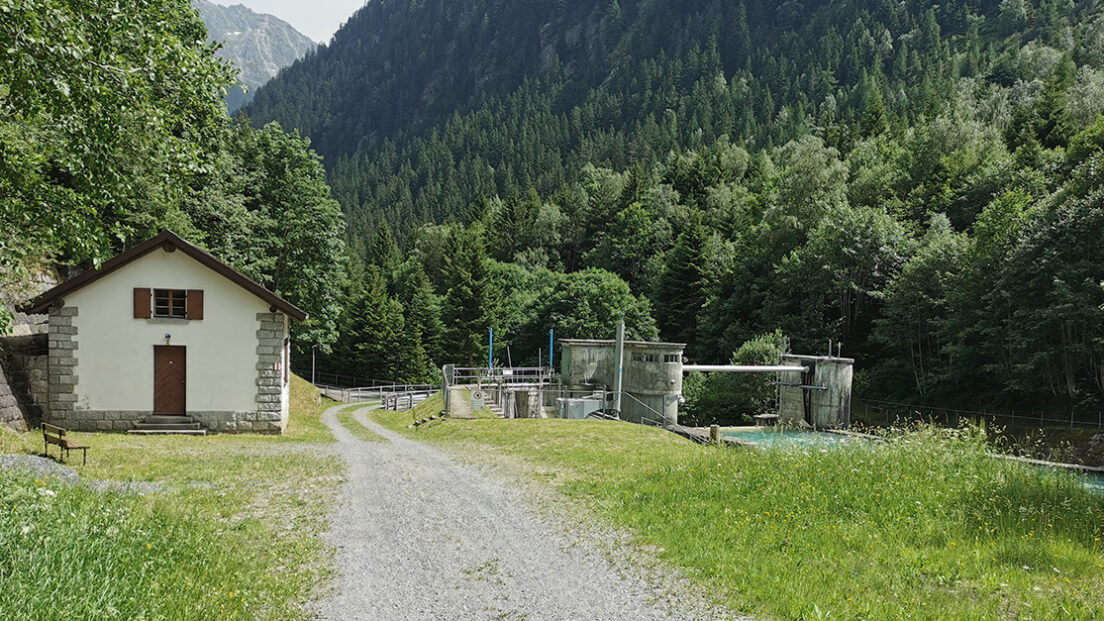The government of Uri rejects the environmental associations' objection to the renewal of a license for CHC

CKW wants to build a new run-of-river power plant with local partners in Meiental. This would enable around 32 GWh of electricity to be produced annually for the population of Uri. In 2018, CKW submitted an application to renew its 1944 concession for the use of the Meienreuss. The environmental organizations WWF and Pro Natura have objected. The Uri government council has now rejected this objection at its meeting on July 5, 2022.
Rapid expansion of renewable energies is more necessary than ever. The hunger for electricity in Switzerland is growing, the reliability of electricity imports from abroad is dwindling and a third of the annual domestic electricity production will be lost with the phasing out of nuclear energy. In short: new power plants urgently need to be built to prevent power shortages in Switzerland very soon.
In 2018, the Canton of Uri publicly published the modified license application for the use of the Meienreuss and thus advocated the expansion of renewable energies in the canton of Uri. The environmental organizations WWF and Pro Natura then raised an objection. CKW repeatedly sought dialogue with the objectors to reach an agreement, but without success. At its meeting on July 5, 2022, the government of Uri rejected the objections of the environmental associations and thus sent an important signal for the energy transition. The environmental associations can lodge an appeal with the Uri High Court on this decision and thus take legal action, which can go as far as the Federal Supreme Court. This would trigger a massive project delay. However, CKW CEO Martin Schwab hopes that they too have recognized the seriousness of the situation: “In terms of the energy transition and in view of the current energy crisis, it must be possible for us to implement such important projects of national importance quickly. This requires targeted action on all sides. You can’t be in favor of the energy transition, the expansion of renewable energies and more climate protection and at the same time block important projects,” says Schwab.
Power station of national importance produces electricity for the people of Uri
The Meiental power plant is located in the municipal area of Wassen and is a joint project by CKW and several local partners. The total investment is around CHF 37 million. Hydropower has been the backbone of electricity supply in Switzerland for over 100 years. Because it produces ecologically sustainable, renewable electricity reliably and predictably at all times – even in winter. However, due to ecological requirements, hydropower is facing production losses of around 10 percent by 2050. With the Meiental run-of-river power plant, CKW wants to make an important contribution to more renewable electricity production and security of supply in the canton of Uri. The targeted annual production is 32 GWh. This corresponds to the consumption of around 7100 average 4-person households.
Original project revised and reduced
The power plant project meets all the requirements of the “Protection and use concept for renewable energies in the canton of Uri” (SNEE). The SNEE shows where in the canton of Uri systems for energy production from renewable sources such as water, wind and sun can be set up and where landscapes and watercourses should be preserved undiminished. Based on the SNEE, CKW has revised its original project submitted in 2008 and reduced it from two to one power station stage in the lower reaches of the Meienreuss. The use of the ecologically more valuable upper course with partial floodplain character as well as the alpine tributaries is dispensed with. With a protection and use plan, these parts of the body of water are excluded from use for energy production for the concession period of 80 years that has been applied for.
Due to the large production volume, the Meiental power plant is considered a power plant of national importance under the Swiss Energy Act. The national public interest in safe electricity production thus takes precedence over regional protection interests. Furthermore, without this power plant, it would not be possible for the Canton of Uri to be able to achieve its own expansion target of 150 GWh for its own energy production.